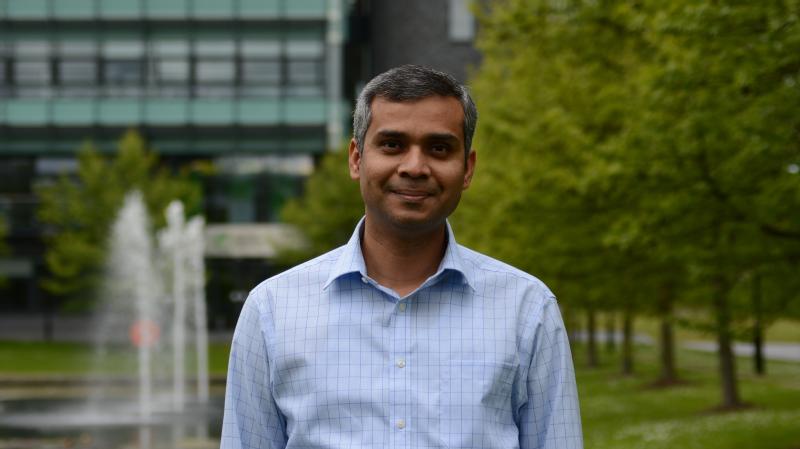Computer Science News
Sayan Bhattacharya joins the Department as a new Assistant Professor
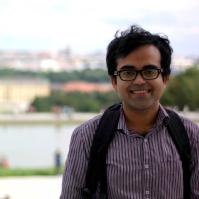
The Department is welcoming our new Assistant Professor Sayan Bhattacharya, who will be associated with the Division of Theory and Foundations (FoCS) and the Centre for Discrete Mathematics and its Applications (DIMAP).
Sayan obtained his PhD in Computer Science from Duke University (USA) in 2012. Then he did his postdoc at Max Planck Institute for Informatics, Saarbrücken (Germany) and at University of Vienna (Austria). From October, 2014 till February, 2017, he was a faculty member at the Institute of Mathematical Sciences, Chennai (India).
He works in theoretical computer science. Specifically, his research interests are in dynamic graph algorithms, data structures, online algorithms, streaming algorithms, and algorithmic game theory.
For more information about Sayan's research please see his web page at https://www.imsc.res.in/~bsayan/.
New collaborative project on parity games
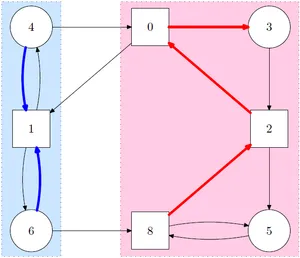
Dr Marcin Jurdzinski and Dr Ranko Lazic from Warwick's DIMAP inter-disciplinary centre and the Computer Science department, jointly with Dr Sven Schewe, Dr John Fearnley and Dr Dominik Wojtczak from the University of Liverpool, will lead a new research project on solving parity games in theory and practice, to run 2017-2020.
The project will be supported by approx. £750K from the EPSRC across the two sites. The proposal was ranked top at its funding prioritisation panel, and the reviewers said:
This is the strongest and best designed proposal on theoretical computer science I have seen in the last five years.
as well as
The proposal is about fundamental research, but there is a clear path connecting the expected results to concrete industrial needs on program verification and program synthesis.
Professor Artur Czumaj, head of DIMAP and of the Theory and Foundations research division, commented:
This exciting new EPSRC project builds on excellence in theoretical computer science for which Warwick is internationally renowned. It strengthens our collaborative links with Computer Science at Liverpool, who were likewise one of the leading departments for research outputs in the most recent REF.
University contributing to new advances in cancer diagnosis
A University of Warwick computer scientist is working with technology that could revolutionise how some cancers are diagnosed.
A high-tech computer system is able to read samples of human tissue and aid pathologists in the identification of minute changes in cells that can indicate cancer is present. More than 10,000 slides were examined in the first phase of the study[1] which shows that pathologists are as good at accurately diagnosing cancer on a computer as they are with a microscope.
Now Professor Nasir Rajpoot is working with University Hospitals Coventry and Warwickshire NHS Trust (UHCW) to develop the next generation of image analytics to use with this technology.
The ground breaking technology has the power to help pathologists grade some types of tumours, including lung, prostate and bladder tumours with precision. In prostate cancer, for example, this could make the difference between someone being offered surgery rather than drug based treatments.
The computer system known as The Omnyx® Precision Solution™, can help pathologists to see the small differences in cells in the same way that they have currently been using a microscope, allowing them to make sound decisions on many aspects of cancer diagnosis.
UHCW is the first in the UK to introduce this kind of innovation to its routine practice, meaning it is already benefitting patients.
The Omnyx system digitises slides which are traditionally placed on a microscope so that pathologists can look at them on a computer. Once on the computer, the UHCW scientists have written programmes which will separate normal from abnormal samples.
Consultant pathologist David Snead said:
“I am delighted that University Hospital, Coventry has led this ground breaking study. This provides even greater evidence that digital pathology really works, and works well. The introduction of digital pathology has fantastic potential benefits for patients. We can expect to be able to read samples more quickly than before, and the big advantage is that we can use the computer to easily manipulate an image or its data. For some patients, this additional information may change how their disease is managed.”
Mamar Gelaye, CEO of Omnyx noted:
“Dr Snead and his team have made a significant contribution to showing the value of digital pathology for both clinicians and patients. We are only at the beginning of harnessing the benefits of digitising pathology services, and we look forward to working with institutions like University Hospitals Coventry and Warwickshire NHS Trust to achieve even greater progress in delivering more accurate and efficient cancer diagnoses.”
Dr Rajpoot said:
“This is a very exciting development in the field of digital pathology. What it means is that we can now move forward with the application of digital pathology image analysis algorithms in a clinical setting. For instance, computer algorithms can automate the process of detecting normal samples so that some routine cases will not need to be looked at by a pathologist at all.
“Together with the team at UHCW, we are looking forward to developing technologies for computer-assisted diagnosis and image analytics for discovering biologically meaningful and clinically relevant signatures of cancer.”
Graham Cormode and Dan Kral awarded ERC Consolidator grants
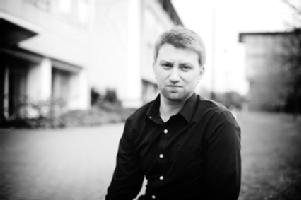
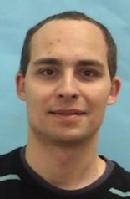
The European Research Council (ERC) has just announced that two Warwick Computer Science Professors, Graham Cormode and Dan Kráľ, have been among the winners of its Consolidator Grant competition. ERC Consolidator Grants is funding 372 top mid-career scientists with €713 million to pursue their best ideas, as part of the European Union Research and Innovation programme Horizon 2020. Grants are worth up to €2.75 million each, with an average of €1.91 million per grant. The funding will enable them to consolidate their research teams and to develop their most innovative ideas.
Graham Cormode has been awarded an ERC Consolidator grant for a project entitled "Small Summaries for Big Data". The project focuses on the area of the design and analysis of compact summaries: data structures which capture key features of the data, and which can be created effectively over distributed data sets. The project will substantially advance the state of the art in data summarization, to the point where accurate and effective summaries are available for a wide array of problems, and can be used seamlessly in applications that process big data.
Dan Kráľ has been awarded an ERC Consolidator grant for a project entitled "Large Discrete Structures". The project will advance theory of combinatorial limits, which combines methods from analysis, combinatorics, computer science, group theory and probability theory to analyze and approximate large discrete structures (such as graphs, which can be used to represent large computer networks). The project will lead to proposing new mathematical methods to represent such discrete structures and to applications of the new methods to specific problems in extremal combinatorics and algorithm design.
EATCS Fellowship for Artur Czumaj
Professor Artur Czumaj has been made an EATCS Fellow for "contributions to analysis and design of algorithms, especially to understanding the role of randomization in computer science”.
Dr Sylvain Schmitz joins DCS as Leverhulme Visiting Professor
The department and DIMAP are delighted to welcome Sylvain Schmitz from LSV, ENS Cachan, CNRS and INRIA Saclay, who has joined us this week as Leverhulme Visiting Professor.
Funded by the Leverhulme Trust, Dr Schmitz will spend 6 months at Warwick, collaborating with Dr Ranko Lazic and other colleagues on logics and games for algorithmic verification, and delivering three research lectures.
Professor Dan Král wins Philip Leverhulme Prize
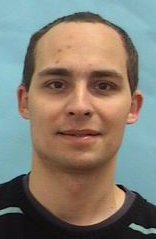
Professor Dan Král has been awarded a Philip Leverhulme Prize for his work on combinatorial limits.
Philip Leverhulme Prize is awarded to outstanding scholars who have made a substantial and recognised contribution to their particular field of study, recognised at an international level, and where the expectation is that their greatest achievement is yet to come.
The research focus of the prize, the theory of combinatorial limits, is a recently emerged and rapidly evolving area of mathematics, which led to opening new links between analysis, combinatorics, computer science, group theory and probability theory.The analytic view of large discrete structures resulted in a substantial progress on many notoriously difficult extremal combinatorics questions. It also gave new understanding of aspects of important concepts such as regularity decompositions. Still, many fundamental problems remain widely open. A particularly challenging problem is finding a robust notion of convergence that would unify the existing notions for dense and sparse discrete structures. In relation to extremal combinatorics, problems of a great significance include a full description of low dimensional projections of the body of feasible limit densities or the existence of finitely forcible (determined) configurations in the extremal points of this body as conjectured by Lovász and Szegedy.

